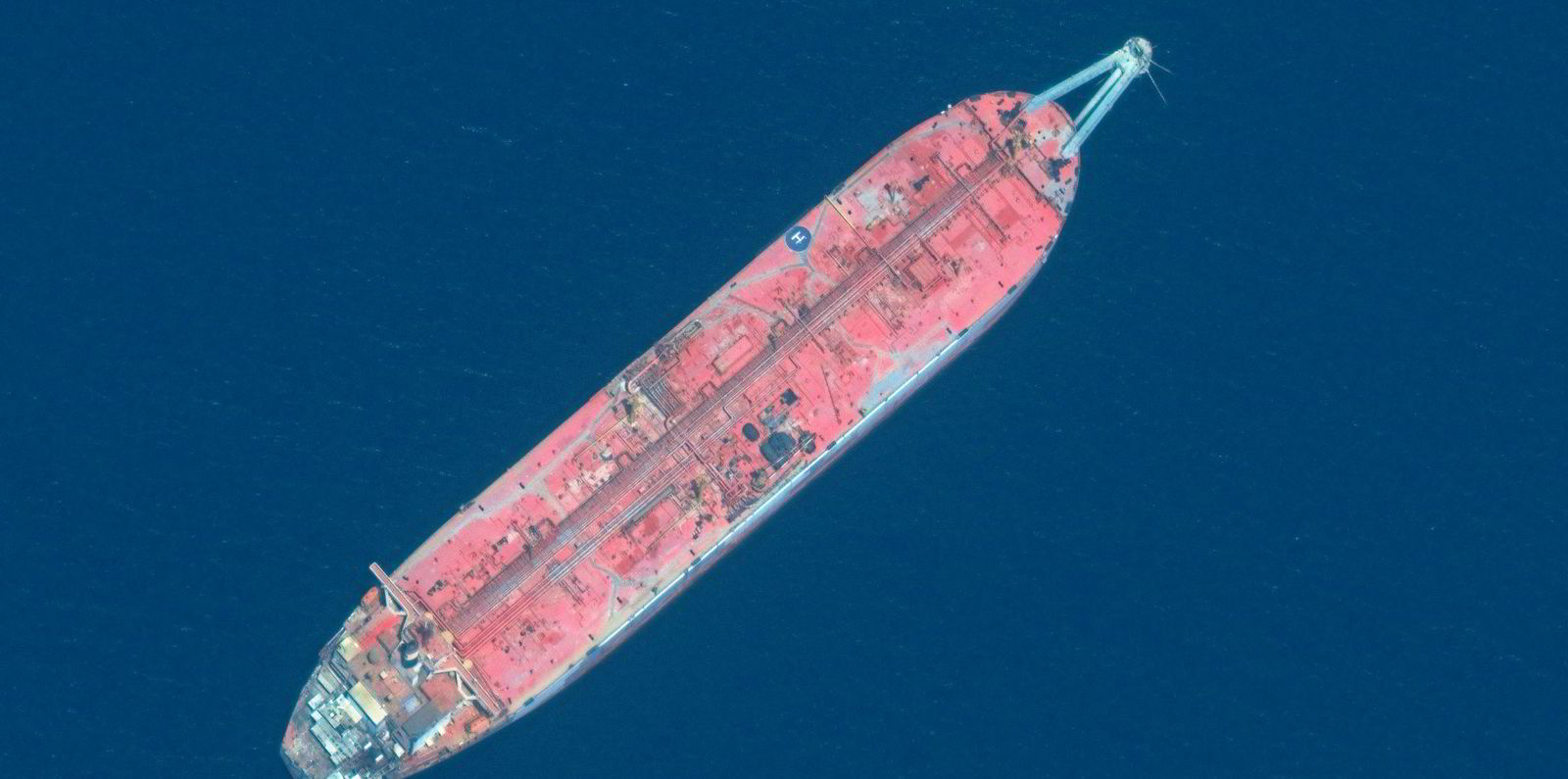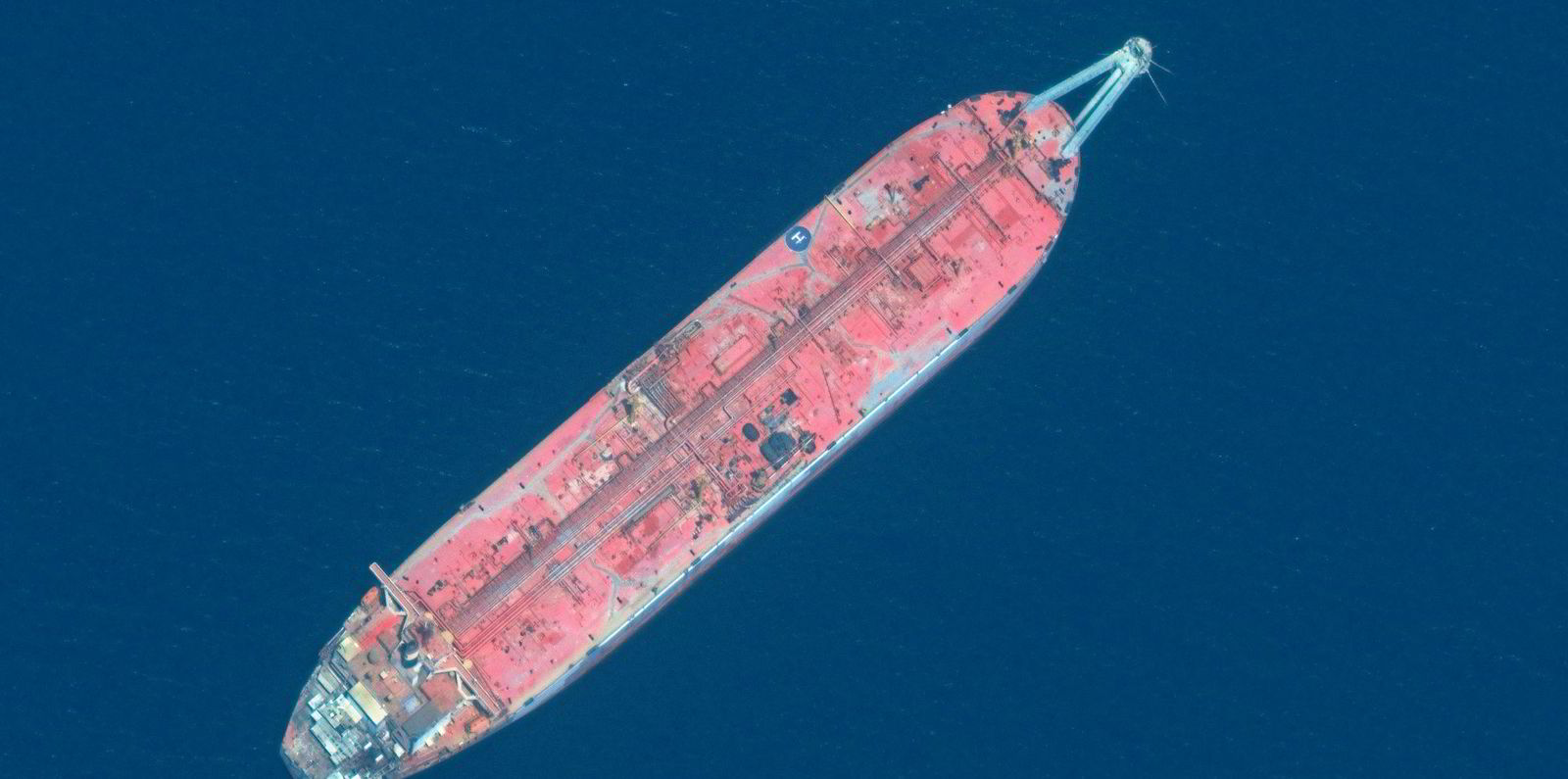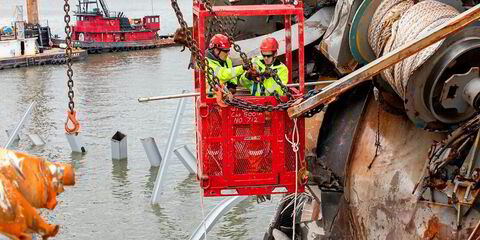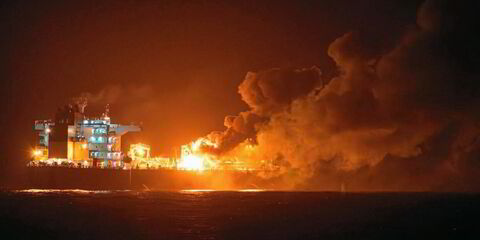An international appeal to raise money to lighter 1.14m barrels of oil from a floating storage vessel at risk of breaking up off Yemen’s coast has reached its initial target, the Dutch government said.
The United Nations-led fundraiser reached the revised $75m needed to start the operation on the decaying FSO Safer as long as governments follow through with their pledges, according to Dutch foreign trade minister Liesje Schreinemacher.
UN officials had hoped to hit the target in June because of fears that worsening weather would break up the ship this winter, leading to a devastating oil spill.
The 407,000-dwt FSO Safer (built 1976) has been described as a “ticking time bomb” that holds four times the amount of oil spilt by the Exxon Valdez off the Alaskan coast in 1989. Its boilers stopped working in 2017 and it has not been maintained during Yemen’s seven-year war.
The FSO Safer has been moored 4.8 nautical miles (8.9 km) off the Ras Issa port for more than 30 years. It is connected via pipeline to the oil-rich city of Marib. The vessel is controlled by Iran-backed Houthi insurgents, who took power in the capital Sanaa in 2015.
“All assessments indicate that the vessel is beyond repair and at imminent risk of spilling oil due to leakages or an explosion because the systems required to pump inert gas into its tanks ceased functioning in 2017,” the UN said in an update last week.
‘Swift action’
The UN also cut the cost of the initial part operation to lighter the fuel to $75m from $80m. The target was finally reached at the weekend with a €7.5m ($7.5m) pledge from the Dutch government.
“The Safer is a ticking time bomb,” Schreinemacher said. “We need swift action. Thanks in part to the Netherlands’ contribution, we now have the necessary funds to start salvaging the vessel.
“Obviously, all the other parties will have to follow through on their pledges as well. The Netherlands stands ready to help the UN start this operation as soon as possible.”
The global body reduced its overall appeal target to lighter the fuel and for a long-term storage replacement to $113m from $144m. The cost was brought down after Yemen’s rival leaderships agreed to a cheaper replacement, a double-hull FSO tethered to a catenary anchor leg mooring buoy system.
UN officials had expressed frustration at the failure of the shipping and oil industries to contribute to the cost of the work. Any leak would cost around $20bn to clean up and have a huge disruption on shipping lanes, according to experts.
David Gressly, the UN resident coordinator for Yemen, said any leak had the potential to close the Bab el-Mandeb Strait, a strategic link between the Mediterranean Sea and the Indian Ocean through which about 10% of world trade passes.
The lightering operation can only start when the funds are received. The UN said in August that it had seen less than $10m of the pledged funds.
A meeting at the UN General Assembly on Wednesday is due to discuss the next steps for the operation.
Russell Geekie, Gressly’s spokesman, said: “With the announcement from the Netherlands, donors have generously pledged the $75 million required for the emergency operation to transfer the oil from the FSO Safer to a safe vessel.
“Now the UN needs donors to convert pledges to cash so that work can begin as soon as possible.”(Copyright)




